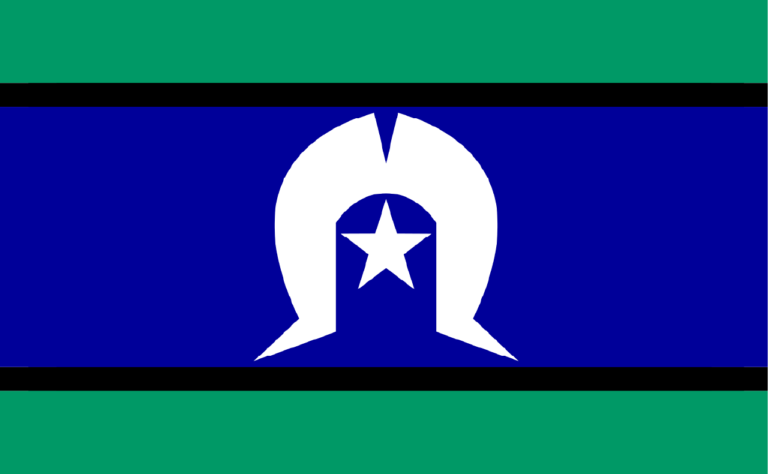Troubleshooting issues with Fines and Infringements
A common issue for people who are homeless or at risk includes the likelihood of a significant number of unpaid court fines and infringement notices. This information sheet aims to outline how to assist with these fines/infringements.
This is information only, you may need to get assistance from a lawyer if:
- The client contests the fine/infringements (i.e wishes to review traffic infringement)
- The client believes they have a defence, and wishes to go before the Magistrate
- The client is under 18; was under 17 when incurring infringements
- The client wishes to know which options suit their circumstances best
- The client wishes to apply for a Work Development Order/Community Work (ensure they understand the consequences/severity of non-compliance)
- Things arising out of this (i.e. ability to apply for a driver’s license in light of this)
A distinction must be made between an infringement notice and a fine.
An infringement notice is issued by the police, local government authorities and various other prosecuting agencies. A person can get an infringement notice for things like speeding, illegal parking, littering or train fare evasion. The infringement notice must be paid within the time specified in the notice, this is generally 28 days from the date of issue.
In contrast, a court ordered fine is an amount of money that a court may order as a penalty for committing an offence. A court ordered fine must be paid within 28 days from the date of issue.
MAKING PAYMENT WITHIN 28 DAYS
Once the fine or infringement is imposed a client has 28 days to pay it. A client can either:
- Pay the full amount;
- Apply for a Time to Pay Order; or
- Apply for a Work Development Order/Community Work.
Applying for a Time to Pay Plan can allow a client to pay the fine/infringement by instalments OR extend the time to pay beyond the 28 day period. This can be arranged to be deducted from Centrelink payments (as outlined under step 3).
IF PAYMENT IS NOT MADE WITHIN 28 DAYS
If payment is not made within 28 days the fine/infringement will be registered with the Fines Enforcement Registry (FER). As a result a fine and enforcement fee will be imposed and the client’s license will be suspended if there is no action taken in 28 days after the notice to enforce is issued (56 days total). To remove this suspension the client must complete a form to withdraw the suspension on the basis that a Time to Pay plan has been executed.
Outstanding fines/infringements owed to FER after a period of time will be referred to the private debt collection agency Baycorp.
Outstanding fines/infringements with FER and Baycorp must be dealt with separately. If an arrangement is entered into with Baycorp then it is possible to negotiate with FER that any enforcement processes for the fines/infringements that remain with them are suspended. This needs to be negotiated on a case by case basis
In relation to fines/infringements with FER (Fines Enforcement Registry) the following steps are required:-
STEP ONE: Contact FER to enquire about outstanding fines/infringements.
Due to long telephone wait times it is best to contact FER via email
FER will respond with the list of fines/infringements and total amount outstanding.
If you have an existing Case Number for any of the fines/infringements you can use eCourts Portal to get a list of outstanding fines/infringements: http://ecourts.justice.wa.gov.au/eCourtsPortal/ViewMyCases
This may also be used to determine if there are new fines/infringements after initial contact.
STEP TWO: Contact client to inform him/her of the total amount outstanding with FER and Baycorp.
Inform the client of potential further consequences that may occur if the fine/infringement remains unpaid.
- Additional fees
- Suspension of drivers licence/vehicle license
- Immobilisation of vehicle
- Publication of name on a website
- Seizure and sale of property
- An order to undertake community service (fine only)
- Imprisonment (fine only)
STEP THREE: Discuss with the client the repayment options for FER fines/infringements that are available. The options available to the client will depend on whether the debt originates from a court ordered fine or an infringement notice.
Court Ordered Fine: The client will have the option to enter a Time to Pay Plan or a Work Development Order/Community Work. Imprisonment is both a consequence and an option for repayment.
Infringement Notice: The client will only be able to enter into a Time to Pay Plan.
NOTE: If a client has outstanding fines/infringements with FER and Baycorp it is not possible to negotiate that the FER fines/infringements be suspended until the Baycorp fines/infringements are paid off. The client needs to enter into 2 separate agreements
Time-to-Pay Plan
This involves payment by regular instalments that are deducted from the client’s Centrelink payment. The amount of the instalments can be negotiated based on income and liability but must be a minimum of $25 a fortnight (and possibly more depending on the amount outstanding and circumstances).
If a client wishes to pursue this they must complete:
Work and Development Order/Community Work
If a client is physically and mentally able they may be able to complete community service work to the satisfaction of their outstanding court ordered fines. This will require a client to work at least 6 hours for each $300 that remains unpaid. If more than 12 hours of work is required, the minimum weekly work period will be 12 hours.
Fines owed will be added to each other cumulatively, and the client must work off the total amount.
If a client wishes to pursue this they must complete:
- A Request to Convert Court Fine form
In relation to fines/infringements registered with Baycorp the following steps are required:-
STEP ONE: Contact Baycorp in regards to any outstanding fines/infringements that have been referred to them by FER. Baycorp can be contacted on 08 6103 2802.
You will need to provide the client’s name, date of birth, an authority to act and if available their address/previous address and customer reference number.
STEP TWO: Baycorp will require the client to go through a financial assessment process. This will require the client to:
- Complete a statement of financial position form that will outline all incomes and liabilities
- Provide any income statements (including Centrelink statements)
- Provide mortgage details, rent receipts, lease agreements
- Provide outstanding accounts statement with balance and payment plan
- Provide bank statements for all bank accounts for the previous 3 months
- Provide court papers or medical reports or proof of injury claim etc.
STEP THREE: Discuss with the client the repayment options for Baycorp fines/infringements that are available.
Court Ordered Fine: The client will be required to enter an Instalment Repayment Agreement or a Work and Development Order (Community Work). If not, they may be at risk of imprisonment.
Infringement Notice: The client will be required to enter an Instalment Repayment Agreement.
At present Baycorp as a private debt collection agency does not have the capacity to deduct instalments from Centrelink payments through the Centrepay process. Therefore a repayment process must be set up by the client with Baycorp either by direct debit or BPay.
NOTE: Once a repayment plan has been established with FER/Baycorp any new fines/infringements accrued by a client will not automatically be bundled into the plan. The client must phone FER/Baycorp to arrange the inclusion of the new fines/infringements into the plan to avoid a licence suspension or additional fees.
Current FER policy is to put FER debt on hold until the Baycorp debt has been paid. This is not reflected in regulation, and is not guaranteed.
If fine and enforcement fees are not paid, or the requirements under the Work and Development Order/Community Work are not completed or cancelled, a Warrant of Commitment may be issued. This will result in being arrested and sent to prison for a specific number of days, according to the amount of fine. Currently, each day served will reduce the fine by $250.
If all offences are non-payment of fines, payment of these fines will result in release from prison. If the client has other offences, and would otherwise remain in prison they can have their fines reduced, and this will run concurrently with other time served, including other fines payment.
Download the printer friendly version here
DISCLAIMER
We hope you find this information useful. However, please be aware it is general information only. It is not legal advice. Unless we speak to you, we cannot guarantee it applies to the situation.
Last updated: 30 June 2018.








